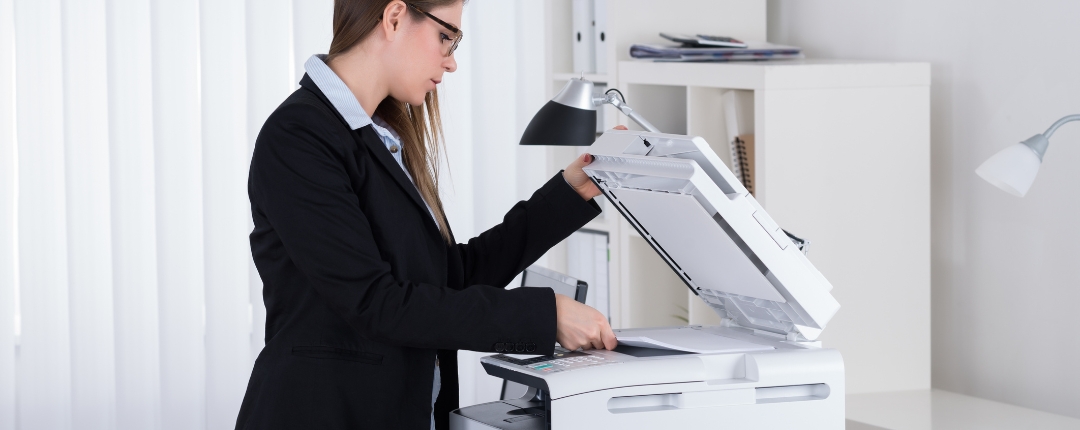When it comes to equipping your office with the necessary tools for productivity, the decision between copier lease and purchasing can be a significant one. Each option has its own set of advantages and disadvantages that can impact your business’s finances, operations, and long-term strategy.
At Printer Copier Guys, we understand the intricacies of these decisions and are here to help you make an informed choice. Let’s dive into the key factors to consider when deciding whether to lease or purchase a copier for your business.
1. Initial Costs
Leasing:
Leasing a copier typically requires a lower initial outlay compared to purchasing. Instead of paying a large sum upfront, you make smaller, regular payments over the lease term. This can be advantageous for businesses with limited capital or those looking to preserve cash flow for other investments.
Purchasing:
Buying a copier outright involves a significant upfront investment. However, once purchased, the copier becomes a business asset with no ongoing lease payments. This can be a good option for businesses with sufficient capital and those looking to avoid long-term commitments.
2. Maintenance and Repairs
Leasing:
Lease agreements often include maintenance and repair services as part of the package. This means that any issues with the copier are handled by the leasing company, reducing downtime and ensuring that your copier is always in good working condition. Additionally, leasing companies may provide upgrades to newer models during the lease term.
Purchasing:
When you purchase a copier, maintenance and repair responsibilities fall on your business. You’ll need to either manage these tasks in-house or hire a service provider. While this allows for greater control over the copier, it also means bearing the costs of repairs and maintenance out of pocket.
3. Technology Upgrades
Leasing:
One of the significant advantages of leasing is the ability to upgrade to the latest technology. As your lease term ends, you can opt to lease a newer model with the latest features. This is particularly beneficial in the fast-evolving world of office technology, where staying up-to-date can enhance productivity and efficiency.
Purchasing:
When you buy a copier, you’re committing to that specific model for its useful life. While this means you won’t incur ongoing lease payments, it also means you may be using outdated technology after a few years. Upgrading requires another significant capital investment.
4. Financial Considerations
Leasing:
Leasing payments are typically treated as operating expenses, which can be deducted from your taxable income. This can provide tax benefits and make budgeting easier, as you have predictable monthly expenses. However, over time, the total cost of leasing can exceed the cost of purchasing.
Purchasing:
Purchasing a copier is considered a capital expenditure. While the initial cost is higher, you benefit from depreciation deductions on your taxes. Additionally, once the copier is paid off, you have no further payments, which can lead to long-term savings.
5. Flexibility
Leasing:
Leasing offers flexibility in terms of contract length and terms. You can choose a lease duration that aligns with your business needs, and at the end of the term, you can decide whether to renew, upgrade, or return the copier. This flexibility can be particularly beneficial for businesses experiencing growth or those with fluctuating needs.
Purchasing:
Purchasing a copier means a longer-term commitment to that specific machine. While this can be advantageous for businesses with stable needs, it offers less flexibility if your business scales rapidly or your needs change significantly.
6. Asset Management
Leasing:
With leasing, the copier remains the property of the leasing company. This means you don’t have to worry about asset depreciation or disposal at the end of its useful life. The leasing company handles these aspects, allowing you to focus on your core business activities.
Purchasing:
When you purchase a copier, it becomes a business asset that you can include on your balance sheet. This can improve your asset base, but it also means you need to manage the asset, including depreciation and eventual disposal or resale.
Conclusion
Deciding whether to lease or purchase a copier depends on various factors, including your financial situation, business needs, and long-term goals. Leasing offers lower initial costs, flexibility, and included maintenance, making it an attractive option for businesses looking to preserve capital and stay current with technology. On the other hand, purchasing provides ownership, potential long-term savings, and full control over the asset, which can be ideal for businesses with stable needs and sufficient capital.
At Printer Copier Guys, we’re committed to helping you make the best decision for your business. Our team of experts can guide you through the pros and cons of each option, ensuring you choose the solution that aligns with your operational and financial goals. Whether you decide to lease or purchase, we offer a wide range of high-quality copiers and comprehensive support services to meet your needs.

